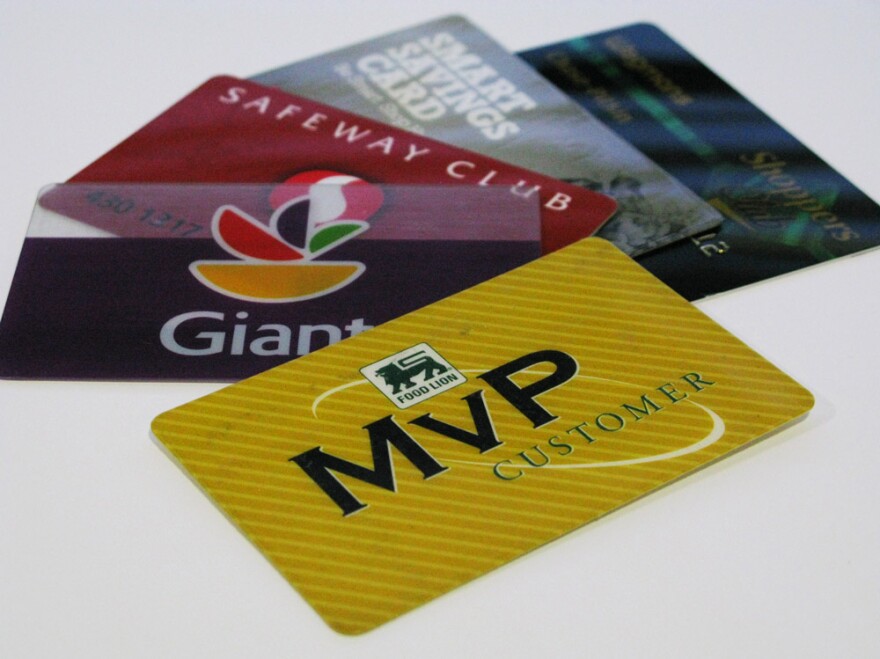Imagine someone asking you what you had for breakfast, lunch and dinner weeks ago. Most of us would do a fair to miserable job of recalling that. But it's exactly the information that investigators need to sleuth out the source of an outbreak of Salmonella or E. coli, as German officials learned the hard way this summer.
Enter the lowly supermarket loyalty card. It stores valuable data on customer shopping habits, which companies use to adjust marketing and pricing. That data also contains a record on purchases unfogged by flukes of memory. And now epidemiologists are also starting to mine grocery data to investigate outbreaks.
The research database PubMed lists only one case of investigators using loyalty cards to track an outbreak, in British Columbia in 2007. But reporter Elizabeth Weise at USA Today cottoned on to the fact that epidemiologists are starting to turn more and more to loyalty card data.
Her article, out this week, explains how state health departments and the federal U.S. Centers for Disease Control and Prevention used loyalty card data to ID Turkish pine nuts purchased at Wegman's as the source of a recent salmonella outbreak; quickly trace the source of a 2010 E. coli outbreak to raw milk Gouda cheese bought at Costco; and pinpoint black and red pepper coating salami as the source of a 2009 Salmonella outbreak.
complain that people give big corporations undue access to their refrigerators and medicine cabinets when they use loyalty cards. "For what is often a minimal incentive, they encourage many consumers to hand over valuable intelligence about themselves and their behaviour," fumed a writer at infosecurity.com. But the cards remain popular.
Outbreak investigators are addressing privacy concerns by asking the permission of individuals for access to their card data.
So the next time you swipe your supermarket card, think: Am I letting the marketers of America know that I'm buying Doritos yet again? Or will this data someday be used to discover that the chicken did it?
Copyright 2020 NPR. To see more, visit https://www.npr.org. 9(MDAxNDQ2NDAxMDEyNzU2NzM2ODA3ZGI1ZA001))



